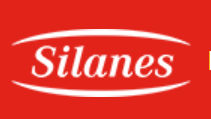Request Demo
Last update 08 May 2025
COXs x GR
Last update 08 May 2025
Related
6
Drugs associated with COXs x GRTarget |
Mechanism COX inhibitors [+1] |
Active Org. |
Originator Org. |
Active Indication |
Inactive Indication- |
Drug Highest PhaseApproved |
First Approval Ctry. / Loc. Portugal |
First Approval Date04 Aug 2011 |
Target |
Mechanism COX inhibitors [+1] |
Active Org. |
Originator Org.- |
Active Indication |
Inactive Indication- |
Drug Highest PhaseApproved |
First Approval Ctry. / Loc. Canada |
First Approval Date04 Oct 1982 |
Target |
Mechanism COX inhibitors [+1] |
Active Org.- |
Originator Org.- |
Active Indication |
Inactive Indication- |
Drug Highest PhaseApproved |
First Approval Ctry. / Loc.- |
First Approval Date20 Jan 1800 |
6
Clinical Trials associated with COXs x GRNCT06863701
Efficacy and Safety Study for the Combination of Etoricoxib / Betamethasone Compared to Etoricoxib for the Treatment of Patients Diagnosed With Acute Gout Arthritis
Phase III longitudinal, multicenter, randomized, double-blind clinical trial. The aim of this study is to evaluate the efficacy and safety of the Fixed-Dose Combination of Etoricoxib/Betamethasone Versus Etoricoxib in Patients With Acute Gouty Arthritis
Start Date27 Jan 2025 |
Sponsor / Collaborator |
NCT05706870
A Multicenter Randomized Double-blind Placebo-controlled Parallel Group Phase II Study Evaluating the Clinical Efficacy and Safety of GN-037 Cream Used in the Treatment of Mild to Moderate Plaque Psoriasis
This Phase II study was designed as a multicenter, randomized, double-blind, placebo-controlled and 3-parallel arm, to assess clinical efficacy, safety, and tolerability of GN-037 versus clobetasol 17-propionate and placebo in patients diagnosed with mild to moderate plaque psoriasis at least 6 months ago
Start Date07 Dec 2022 |
Sponsor / Collaborator |
NCT05428202
Phase I Study to Assess Safety, Tolerability and Clinical Benefits of Topically Applied GN-037 Cream in Healthy Volunteers and Patients Diagnosed With Psoriasis
In this Phase I study, three different doses (low, medium and high dose, on the basis of surface area applied) of GN-037 cream (12 volunteers in total) and placebo (6 volunteers in total) will be administered to healthy volunteers. In the active dose arm, 4 healthy volunteers will receive GN-037 cream and 2 healthy volunteers will receive placebo. Randomization in each dose arm will be 2:1.
Start Date28 Mar 2022 |
Sponsor / Collaborator |
100 Clinical Results associated with COXs x GR
Login to view more data
100 Translational Medicine associated with COXs x GR
Login to view more data
0 Patents (Medical) associated with COXs x GR
Login to view more data
219
Literatures (Medical) associated with COXs x GR01 May 2025·Steroids
Target-specific high-throughput screening of anti-inflammatory phytosteroids for autoimmune diseases: A molecular docking-dynamics simulation approach
Article
Author: Panda, Maitreyee ; Sahoo, Alaka ; Paidesetty, Sudhir Kumar
01 Jan 2025·Fish & Shellfish Immunology
Enhancing farmed fish welfare: Evaluating the effectiveness of plant-based stress mitigating agents as sedatives in sea bass (Dicentrarchus labrax) following intraperitoneal vaccination
Article
Author: Mancera, Juan M ; Cartan, Sara ; Khansari, Ali Reza ; Jerez-Cepa, Ismael ; Balasch, Joan Carles ; Azizi, Sheida ; Tort, Lluis
01 Dec 2024·Tissue and Cell
Hepatoprotective effect of silymarin-chitosan nanocomposite against aluminum-induced oxidative stress, inflammation, and apoptosis
Article
Author: El-Demerdash, Fatma M. ; Mohamed, Tarek M ; Radwan, Aliaa M. ; El-Demerdash, Fatma M ; Ahmed, Manal M. ; Kang, Wenyi ; Mohamed, Tarek M. ; Radwan, Aliaa M ; Ahmed, Manal M
Analysis
Perform a panoramic analysis of this field.
login
or

AI Agents Built for Biopharma Breakthroughs
Accelerate discovery. Empower decisions. Transform outcomes.
Get started for free today!
Accelerate Strategic R&D decision making with Synapse, PatSnap’s AI-powered Connected Innovation Intelligence Platform Built for Life Sciences Professionals.
Start your data trial now!
Synapse data is also accessible to external entities via APIs or data packages. Empower better decisions with the latest in pharmaceutical intelligence.
Bio
Bio Sequences Search & Analysis
Sign up for free
Chemical
Chemical Structures Search & Analysis
Sign up for free


